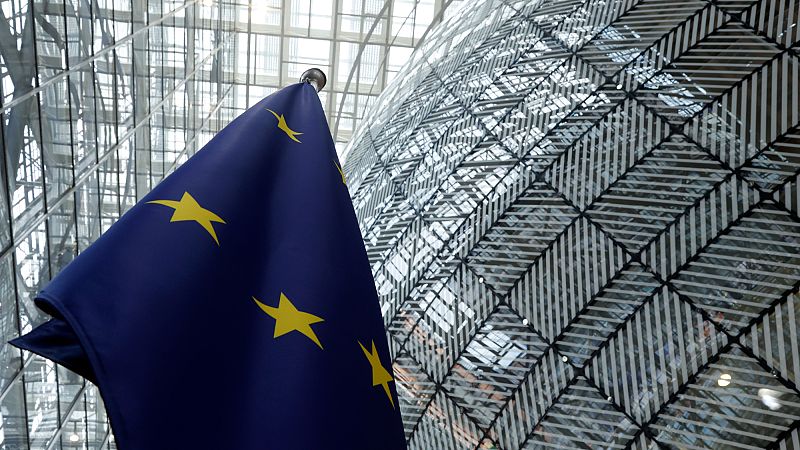Exclusive: EU Council faces landmark defamation claim in Germany over sanctions ‘reasons’

The Council of the European Union could be forced to defend itself in a Hamburg court in what lawyers say would be a first-of-its-kind defamation action linked to an EU sanctions decision—if an appeal now pending before Germany’s Federal Court of Justice succeeds, according to filings seen by Euronews.
The case targets the Council’s statement of reasons adopted in September 2023 for listing businessman Alisher Usmanov. Usmanov’s lawyer, Hamburg-based Joachim Steinhoefel, argues that key assertions relied on by the Council have since been shown to be unjustified.
One passage stated that Usmanov “reportedly fronted for President Putin and solved his business problems”, a claim the Council sourced to Forbes. Steinhoefel challenged that before the Hamburg Regional Court, which held the allegation unlawful. Forbes has appealed on jurisdiction and defends the original article as protected opinion rather than a verifiable fact.
“A journalist’s expression of opinion cannot serve as a basis for sanctions. The Council cannot publish it as a purported statement of fact if the author themselves clarifies it was opinion,” Steinhoefel told Euronews.
Steinhoefel also points to a claim in Austrian newspaper Kurier that President Putin called Usmanov “his favourite oligarch”—which, he says, has been ruled unlawful and banned from dissemination—as well as a tweet the Council cited that was later retracted.
According to Steinhoefel, hundreds of articles, including pieces in major European outlets, have been removed or corrected—among them reports alleging ties between Usmanov and Russia’s political leadership, claims that sit at the heart of the EU’s listing rationale. He says more than sixty court judgments or binding undertakings have required media and politicians to stop repeating such allegations. This week, he claimed, an important European newspaper executed a cease-and-desist undertaking and withdrew all claims of editorial manipulation at Kommersant, Usmanov’s business daily—claims that mirrored those made by the Council of the European Union.
Case focuses on Council's use of media reports
“Our concrete examples appear to show that the Council does not meaningfully verify sources and is satisfied with unverified press cuttings—even where the author recants, including in court,” he said. In his view, that falls short of the EU case-law standard that allows the Council to cite press material only when drawn from multiple independent sources, with sufficiently specific facts, and where the reports are reliable and consistent with the underlying record.
The lawsuit also attacks another passage of the Council’s reasons as defamatory: “Furthermore, he is a leading businessperson operating in Russia and a businessperson involved in an economic sector providing a substantial source of revenue to the Government of the Russian Federation … Therefore he actively supported the Russian government’s policies of destabilisation of Ukraine.”
Steinhoefel counters that Usmanov is branded as “actively supporting” destabilisation solely because he holds shares in a holding company that generates profits and is, by law, required to pay taxes. “The exercise of a lawful, constitutionally protected economic liberty (owning shares) together with compliance with a legal duty (paying taxes) is being re-labelled as geopolitical support,” he argues. “To avoid that label one would have to evade taxes—a crime—or abandon one’s business—an unreasonable demand in any rule-of-law order.” He calls the inference “a perverse inversion of basic rights”.
Steinhoefel’s case characterises the Council’s approach as “coercion by proxy”: targeting businesspeople said to have influence over Moscow in order to conscript them into exerting pressure on the government to change course. That, he says, offends the democratic principle that lawful private conduct should not be instrumentalised as leverage in foreign policy.
Because EU courts do not provide a tort-style action for defamation against EU institutions, Steinhoefel first sought to serve proceedings on the Council in Hamburg. An appeals court held the Council enjoys immunity from being sued in German courts. Steinhoefel claims this violates Article 19(4) of Germany’s Basic Law, which guarantees a right to judicial redress for infringements of basic rights.
He has now appealed to the Federal Court of Justice in Karlsruhe. The suit does not challenge the sanctions listing itself; it seeks an order prohibiting the Council from further disseminating the contested statements. A decision is pending.
Today

